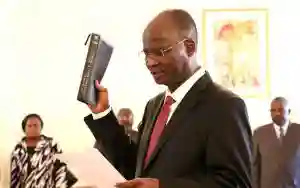Exiled former cabinet minister Professor Jonathan Moyo has described his former party, Zanu-PF, as being clueless about elections. He described the rigging narrative as being complex and advised the opposition to have “technical, legal and political experts who understand the design and operation of the voting system” to minimise rigging in the upcoming 2018 elections. Speaking to The Standard, Moyo said,
As a political party, Zanu PF has always been clueless about elections but has always benefited from the power of incumbency through government officials and the security apparatus that is run and controlled by securocrats.
But the point is I never ever participated in any general election in Zimbabwe as a government official. Not even once. …Whereas I won my first two elections in 2005 and 2008 as an opposition candidate, I lost in 2013 as a Zanu PF candidate. I’m at a loss as to how you expect me to know anything about what you say is the rigging and manipulation that was done when I lost an election whose alleged rigging was supposed to benefit me.
It’s public knowledge that I unsuccessfully challenged all the way up to the Supreme Court the 2013 election result in Tsholotsho North on grounds that the election had been rigged against me in favour of the MDC-T candidate. So, the election rigging narrative is complex and cuts both ways. The lessons I’ve drawn are that opposition political parties should be careful about self-defeating rigging narratives, which create the false impression that the ruling party has a foolproof rigging capacity.
The bottom line is that first, opposition parties must ensure they have technical, legal and political experts who understand the design and operation of the voting system from start to finish and who can identify and challenge anomalies. Second, opposition parties must field candidates at least in all the 1 958 wards for local elections and all the 210 constituencies. Not having these candidates allows Zanu PF to stuff ballots and increase its provincial totals to influence proportional representation seats.
Third, opposition parties and independent candidates must, well ahead of the election, identify and train capable election agents and deploy a sufficient number of at least four such agents in each of the polling stations in the constituencies they are contesting and for political parties the requirement is to have four polling agents in at least 9 760 polling stations (based on the 2013 poll) across the country.
The absence of polling agents or the fielding of incompetent, fearful or manipulatable ones creates huge room for rigging elections, especially when it comes to under or over-counting of votes at polling stations or collation centres.

